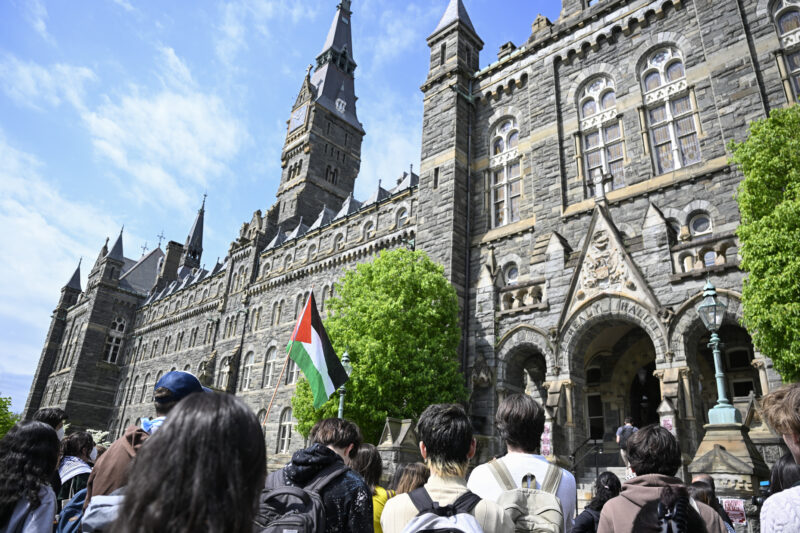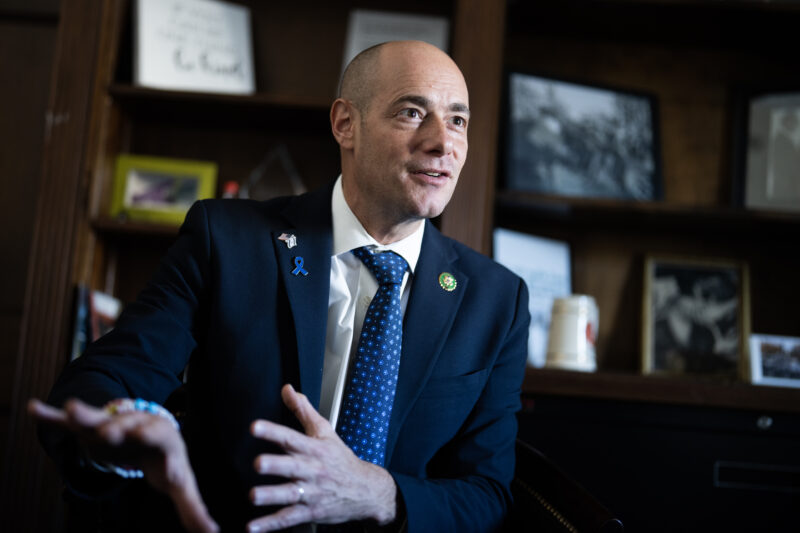Israel, and with it, Netanyahu, is a key cog in Trump’s broader vision for the Middle East

Avi Ohayon/GPO
Israeli Prime Minister Benjamin Netanyahu and his wife, Sara, depart for Washington, D.C., July 6, 2025
When Israeli Prime Minister Benjamin Netanyahu sits down with President Donald Trump today, one question will be on observers’ minds: What will each walk away with?
Netanyahu appeared to come away empty-handed from his April meeting in Washington, after the U.S. imposed tariffs on Israel, among other countries. Weeks later, Trump skipped Israel on his first trip abroad, while visiting three other countries in the region.
Few knew at the time about Netanyahu’s plans to take on Iran. Following last month’s joint U.S.-Israel military effort to degrade Iran’s nuclear program and military infrastructure, relations between the two leaders have improved to such a degree that last week Trump called twice for an end to the legal proceedings against Netanyahu. A post-strikes-on-Iran victory lap is top of the public agenda for Netanyahu’s White House visit today, while Trump’s other goals, as they relate to Israel, remain works in progress.
The White House wants to wind down the war in Gaza, as Trump has said many times in recent months. After the American bunker busters dealt Iran the final punch that Israel pushed for, the president has newly gained leverage to push Netanyahu to end the war in Gaza — a move the Netanyahu government has thus far resisted until it has achieved its goal of “total victory” against Hamas. Trump told reporters on Sunday night that “there’s a good chance we have a deal with Hamas during the week pertaining to quite a few of the hostages.”
While Israeli negotiators arrived in Doha to work on a hostage deal that Hamas claimed it accepted despite also asking for myriad changes, at home Netanyahu has indicated that he is not yet ready to declare an end to the war, even if he were to accept a temporary ceasefire.
In the Security Cabinet meeting over the weekend, Netanyahu sided with Finance Minister Bezalel Smotrich and National Security Minister Itamar Ben-Gvir in an argument with IDF Chief of Staff Lt.-Gen. Eyal Zamir, with the ministers to Netanyahu’s right reportedly raising their voices, about the IDF’s difficulty thus far in keeping Hamas away from food distribution zones.
“I can’t accept the idea that we cannot defeat Hamas, that it will take 30 years,” Netanyahu reportedly said. “That is wrong. It’s a matter of national willpower and implementing the plan to separate Hamas from the population and the aid. We can end the war. We have to start preparing the ground to go in with bulldozers immediately.”
“I don’t want another committee. Just do it now,” was Netanyahu’s response when Defense Minister Israel Katz tried to mediate, suggesting that Zamir present a plan later this week.
In addition to calling for a ceasefire, the president and members of his administration have been outspoken about their desire to expand the Abraham Accords. Talks between Israel and Syria — brokered by U.S. Ambassador to Turkey Tom Barrack, who is also the administration’s special envoy to Syria, and aimed at calming tensions along the border — have taken place in recent weeks, though an agreement on that front remains elusive and is unlikely to be announced this week.
That’s only part of Washington’s new approach to Syria, which also includes the move earlier this month to lift sanctions on the country. It’s part of the White House’s broader strategy to gain leverage there while Damascus is in transition following the ouster of Bashar al-Assad last December.
With the degrading of a series of regional malign actors — from Hezbollah in Lebanon to Hamas in Gaza to the Assad regime in Syria to the Iranian nuclear program — Trump has a rare opportunity to reassert American power and shake the footholds that Beijing, Tehran and Moscow have built across the region. He’s equally if not more so driven by a desire to be, as he said in his inaugural address, “a peacemaker and unifier.” Bringing an end to the Israel-Hamas war and expanding the Abraham Accords would set Trump on that path.
Israel, and with it, Netanyahu, is a key cog in Trump’s broader vision for the Middle East. The stakes are high for both men, who need to work with each other to achieve both their visions and cement their legacies.


































































